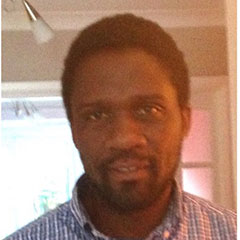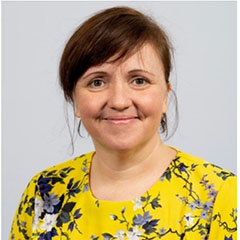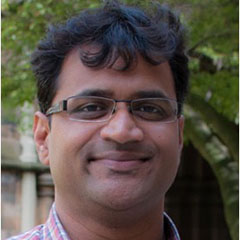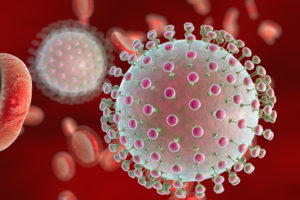Genomics and Clinical Virology
11–16 June 2023
Wellcome Genome Campus, UK
Learn how to apply next-generation sequencing technologies to clinical virology
Course Summary
Viral genome sequencing and sequence-dependent detection methods have been applied to the diagnosis and management of viral infections for decades. However, the introduction of next-generation sequencing (NGS) technologies is transforming how clinical microbiology laboratories diagnose and manage infectious diseases. Whole genome sequencing (WGS) of hundreds of microbes can be undertaken in hours enabling real time genomics for diagnostics, transmission investigation and infection control.
This Genomics and Clinical Virology course combines practical hands-on laboratory and bioinformatics work with faculty lectures by, and discussions with, leaders in this crucial, exciting, and expanding area. The course is aimed at virology researchers at PhD, postdoc or more senior level who have an interest in learning how to carry out NGS of viral genomes, and Clinical Scientists and Specialist Registrars who are planning to implement NGS in clinical diagnostic laboratories. The course will concentrate on the application of cutting edge genomic techniques that can be implemented now and explore new approaches that will enter practice in the near future.
The course is aimed at virology Clinical Scientists and Specialist Registrars who are planning to implement NGS in clinical diagnostic laboratories.Virology researchers at PhD, postdoc or more senior level who have an interest in learning how to carry out NGS of viral genomes are also encouraged to apply.
What will I learn?
The practical part of the course will provide laboratory sessions that will focus on the preparation of sequencing libraries for metagenomics and PCR-based approaches with particular emphasis on how to improve the efficiency of viral NGS by undertaking variations in library preparation techniques such as target enrichment by probe hybridization and the use of long-read technologies.
Participants will gain practical experience in Linux/Unix command line usage, bioinformatics analysis of the output data with focus on quality control of NGS data, reference mapping and de novo assembly approaches, and downstream analyses such as phylogenetic inference and variants associated with drug resistance. There will be lectures and demonstrations of the potential applications of NGS in clinical laboratories, limitations and pitfalls of the techniques and clinical case studies e.g. in infection control and outbreak investigations including the ongoing SARS-CoV-2 pandemic.
CPD Accreditation
The course is approved annually for CPD accreditation by the Royal College of Pathologists (44 credits in 2022).
PLEASE NOTE: bursaries are available for clinical and academic applicants from anywhere in the world to attend this course. Please see the “Cost / Bursaries” tab below for more information.
Programme
The course will cover a wide range of cutting-edge viral WGS laboratory techniques and *bioinformatics analysis in practical classes, demonstrations or lectures. The areas and issues to be addressed will include:
- Background to viral WGS approaches
- Sample handling and preparation
- Library preparation techniques
- Target enrichment methods e.g. probe-based sequence capture or PCR-based
- Viral metagenomics
- Technique discrimination – the appropriate technique to use in different scenarios
- Next generation and third generation sequencing platforms
- Bioinformatics analysis including different viral genome assembly approaches, variant calling, viral metagenomics, multiple sequence alignment and phylogenetic inference.
- Data interpretation
- Validation and accreditation of viral WGS diagnostic service
- Case studies in outbreak investigation and infection control
Learning outcomes
After attending the course, participants should be able to:
- Carry out NGS, including wet lab preparation and bioinformatic analysis of real samples
- Create sequencing libraries and analyse samples derived from patients with viral infections (e.g. SARS-CoV-2, HIV, HCV, EBOV, Zika)
- Evaluate how to improve the efficiency of NGS by carrying out variations in library preparation techniques e.g. target enrichment
- Evaluate the pitfalls of NGS interpretation in clinical viral diagnostics
- Evaluate potential future applications of NGS in clinical diagnostic laboratories and appreciate the limitations of this technique
- Demonstrate how viral WGS can be used to inform transmission patterns and evaluate the effectiveness of interventions
- Apply Linux/Unix command line to perform bioinformatics tasks
- Construct whole genomes by means of De novo assembly of NGS data and use standard tools to perform reference mapping
- Generate consensus sequences and call variants
- Use metagenomics tools such as KRAKEN and Centrifuge to detect and identify viral pathogens
- Compute multiple sequence alignments and build phylogenetic trees to understand viral evolution and transmission dynamics
*Please note: Bioinformatics training will include the use of Linux/Unix command-line. Although participants will learn to use command line during the course, familiarity with these resources is recommended. There are numerous online introductory tutorials to the Linux/Unix operating system and command line, including:
http://www.ee.surrey.ac.uk/Teaching/Unix
http://swcarpentry.github.io/shell-novice/
Organisers and speakers
Organisers

Prof Nick Loman
Institute for Microbiology and Infection, University of Birmingham, UK

Dr Tamyo Mbisa
Antiviral Unit, UK Health Security Agency, UK

Prof Emma Thomson
MRC Centre for Virus Research, University of Glasgow, UK

Dr Sreenu Vattipally
MRC Centre for Virus Research, University of Glasgow, UK
Instructors and Assistants
Ana da Silva Filipe
UK Health Security Agency, UK
Richard Orton
University of Glasgow, UK
Sunando Roy
University College London, UK
Charlotte Williams
University College London, UK
Cristina Venturini
University College London, UK
David Bibby
UK Health Security Agency, UK
Joshua Quick
University of Birmingham, UK
Samantha Lycett
University of Ediburgh, UK
Guest Speakers
TBC
WCS Team
- Martin Aslett
- Jorge Batista da Rocha
- Aaron Dean
- Amy Pass
- Cassandra Soo
How to apply
Prerequisites
Applicants should be clinical geneticists or clinical scientists delivering genetic healthcare.
How to Apply
Please complete the online application form. Places are limited and will be awarded on merit. If you have any problems with the online application process, please contact the WCS event organiser.
Please note: Applications must be supported by a recommendation from a scientific or clinical supervisor (e.g. supervisor, line manager, or head of department). A request for a supporting statement will be sent to your nominated sponsor automatically during the application process. Applicants must ensure that their sponsor provides this supporting statement by the application deadline. Applications without a supporting statement cannot be considered.
Application deadline: 9 March 2023
Travel visas
Successful applicants will be provided with a support letter for their visa application, if required.
Please visit the following websites for further information on visiting the UK:
Cost and financial assistance
| Cost | Accommodation / meals | |
| Course fee | £860 | This is a residential course and the fee includes all accommodation and meals. |
Bursaries
Limited bursaries are available (up to 50% reduction on the course fee) and are awarded on merit.
If you would like to apply for a bursary, please complete the bursary section of the online application form. Please note that both the applicant and sponsor are required to provide a justification for the bursary as part of the application.
Where there are many bursary applications, the selection committee may issue smaller amounts. Applicants will be notified of a bursary award along with their place on the course, usually within one month of the application deadline. The decision of the selection committee is final.
Additional funding opportunities
Visit our support page for additional financial support opportunities currently available.
Application and bursary deadline: 9 March 2023
Extra accommodation
If you wish to book onsite accommodation either side of the course dates, please contact the Conference Centre directly.
Accommodation services phishing scam – please be vigilant. More information.
Testimonials
Feedback from 2022 Genomics and Clinical Virology course:
“…the best course I’ve ever done…”
“Standard of teaching was exceptional…”
“…well-delivered with excellent tutors…”
“…I wish I had completed these earlier in my career…”
“…great networking opportunities”

